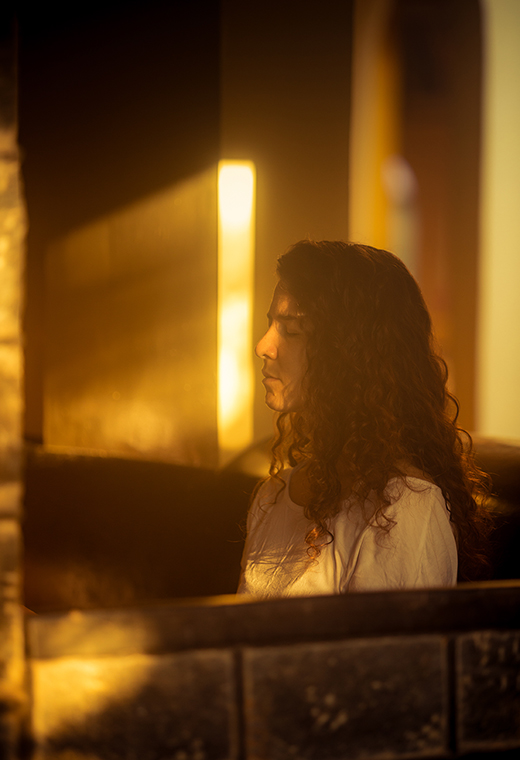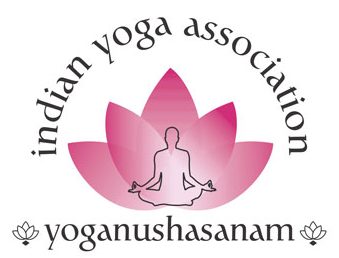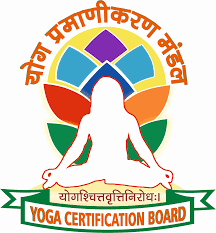Yoga Teachers’ Training Course at Sivananda, India
Immerse yourself into our world-renowned Yoga Teachers Training Course in India, the land where yoga was born.
Develop the skills to teach yoga asana, gaining a solid grounding in the classical yogic tradition, at the same time deepen your spiritual connection to yoga and open yourself to profound inner transformation.
The Teachers’ Training Course (TTC) is a four-week intensive residential course, based on the ancient gurukula system of India where teacher and student live together. You will be in a traditional Ashram and closely interact with our experienced and dedicated teachers and staff who themselves are immersed in the yogic lifestyle. Connect to an ancient teaching lineage (guru parampara), passed down from guru to disciple through thousands of years, the curriculum is extensive and covers both theory and practice. Devotional practices, traditional to India, are an integral part of the Course.
In these four-weeks you will establish a firm foundation of discipline that promotes physical, mental, emotional, and spiritual growth while building a strong base from which to teach others naturally and with confidence.
The Course was designed by Swami Vishnudevananda in 1969 with the vision to not only develop successful yoga professionals but to also spread peace in the world through them. A sincere desire to learn and openness to yogic techniques is required – a basic knowledge of yoga postures and philosophy is preferred, but not essential.
15% EARLY BIRD DISCOUNT
Prices for the Gudur, Madurai and Neyyar Dam TTCs from August 2025 to March 2026 are 15% reduced
up until 1 month prior to course start date.
After the Early Bird period the prices will revert to usual rates; please see individual location web pages for more details – links at bottom of this page
The goal of the programme is to produce qualified and inspiring yoga teachers who are able to draw on their own practice and personal discipline in imparting the yoga experience to others. The curriculum is based on the five points of yoga as taught by Swami Vishnudevananda, which can be understood as the practical application of the traditional four paths of yoga. The intensive daily schedule includes:
• two satsangs • two asana classes • two lectures • one hour of karma yoga
One day a week is lecture-free.
Asanas
- The twelve basic postures in depth
- Practice of classical advanced variations
- Precise and detailed corrections
- Prolonged holding of the asanas
- Deeper understanding of hatha yoga
Pranayama
- Practice of kapalabhati
- Daily practice of anuloma viloma
- Advanced pranayamas
- Use of bandhas
Meditation
- Guide to meditation
- What is meditation?
- Why meditate?
- Concentration and thought power
- 12-step daily practice
- Effects of and experiences in meditation
- Mantras
- Mantra initiation (optional)
Yoga Anatomy and Physiology
- Introduction to the eight major body systems
- The effects of asanas and pranayama on the: cardiovascular, respiratory, digestive and skeletal and muscular systems
- Yoga and physical culture
Yoga Nutrition
- Vegetarianism for physical, mental and spiritual health
- How diet affects the mind
- Principles of nutrition
- Healing effects of fasting
Kriyas
The six classical purification exercises for the eyes, nose, air passages, oesophagus and stomach, abdominal organs and large intestine. Explanation and demonstration of the exercises and their effects. Individual instruction.
• tratak • neti • Kapalabhati • dhauti
• nauli • basti
Teaching Practice
- How to teach the 12 basic postures and breathing exercises to beginners and intermediate students
- Setting up of a proper environment for class
- General pointers on teaching a class
- The Basic Sivananda class
- Beginners’ course
- Advanced postures
- Yoga for children
- Yoga for older citizens
- Yoga for pregnancy
- Relaxation
- Detailed correction workshops
In the second half of the training course, participants will teach each other under the guidance of an experienced instructor.
Bhagavad Gita
One of the greatest spiritual texts of the world, the Bhagavad Gita contains subtle and profound teachings and has a universality which embraces every aspect of human action.
- Study of both the text and Swami Sivananda’s commentary.
Karma and Reincarnation
- The law of cause and effect
- The law of action and reaction
- The law of compensation
- The law of retribution
- Destiny and self-effort
- Samsara, the wheel of birth and death
Hatha Yoga
- Ethical and moral principles
- Body, prana and mind
- From control over the body to control over the mind and meditation
Raja Yoga
- Ashtanga: the eight limbs of yoga
- Antahkarana: functions of the mind
- Concentration and meditation
Kundalini Yoga
- The Absolute and its manifestation in nature
- Macrocosm and microcosm
- The seven chakras
- The awakening of cosmic energy
Bhakti Yoga
- Kirtan: chanting of devotional songs. Chanting opens the heart and purifies the mind. In devotional chanting correct pronunciation, devotional attitude and awareness of meaning are all-important.
- Sanskrit mantras, Indian deities and their cosmic meaning
- Arati and pujas (traditional Indian devotional rituals)
Karma Yoga
- Karma Yoga – selfless service: one hour daily in the Ashram community. You will be asked to do various tasks within the Ashram setting necessary for the smooth running of the community. Karma yoga helps to reduce selfishness and egoism, essential for spiritual progress.
Jnana Yoga
- Basic concepts of Vedanta philosophy
- The seven bhoomikas or planes of consciousness
- Space, time, causation
- The three bodies
- The three levels of the mind
- Conquest of death

| 5.20am | Wake up |
| 6am | Satsang |
| 8am | Asana, pranayama class |
| 10am | Brunch |
| 11am | Karma Yoga |
| 12.00pm | Bhagavad Gita lecture or chanting class |
| 2pm | Main Lecture |
| 4pm | Asana, pranayama class |
| 6pm | Dinner |
| 8pm | Satsang |
| 10.30pm | Lights out |
- Attendance of the entire TTC daily schedule is mandatory.
- One day a week is lecture-free.
- Students enjoy occasional Indian cultural programmes that are offered during evening satsangs.
Graduates of the TTC will receive IYA Certified Course in Yoga (CCY) certification and professional membership where full course fee has been paid.
TTC is suitable preparation for sitting the YCB Yoga Protocol Instructor (YPI) examination.
We provide various options for accommodation depending on the budget and preferences
- For Dhanwantari Ashram, Kerala click here
- For Meenakshi Ashram, Madurai click here
- For Tapaswini Ashram, Andhra Pradesh click here
- For Sivananda Kutir, Uttarkashi click here
- For Himachal Pradesh, click here
Pre-requisites
- Basic knowledge of yoga postures and philosophy is helpful but not essential.
- A high degree of self-motivation and discipline is required for all aspects of the course.
- To ensure the success of the programme, participants are required to attend all spiritual activities, satsangs, lectures and asana classes.
Ashram Guidelines
- Meat, fish, eggs, black tea, coffee, alcohol, tobacco, drugs and nudity are prohibited during the course as they are counterproductive to the yoga practice.
- Students are required to wear their uniform for both satsangs and all lecture classes. For asana class a modest dress-code is followed.
- Vegetarian meals based on local cuisine is provided. It is not possible to cater to personal dietary preferences.
- Attendance at all activities is mandatory.
- Participants who do not comply with the Ashram rules may be dismissed from the course.
Free Day
- Each week there is one day free of lectures. During this day students are required to attend morning and evening satsang.
- During free time, students can explore the Ashram’s vicinity or join our occasional day trips to places of interest.
Changes in the programme may occur from time to time.
Practical Information
- Two sets of uniform and a TTC manual are provided as a part of the course material and are included in the course fee.
- Simple Indian vegetarian meals are provided at 10am and 6pm.
- Evaluation of students is on:
- Attendance
- Performance
- Theory during the course
- Final written exam
- A minimum combined score of 50% is required to pass.
- Unsuccessful students will have to repeat the entire course with cost to qualify for the certificate
- The course is taught in English. An international TTC course with translation is offered in January at Sivananda Yoga Vedanta Dhanwantari Ashram, Kerala depending on demand. Please enquire before making any travel plans if you do not have a good command of both written and spoken English.
- Things to bring – comfortable clothes, sandals, toiletries, personal items, meditation shawl for cool evenings, yoga asana mat, meditation cushion, notebooks, pens, towels, water bottle and torch. You can also purchase these items at the ashram boutique.
- Apart from the TTC manual, there are some recommended texts for the course. These are not included in the course fee and can be bought from the boutique:
- Sivananda Training Manual
- The Completed Illustrated Book of Yoga by Swami Vishnudevananda
- Bhagavad Gita – with commentary by Swami Sivananda
- Sivananda Companion to Yoga
- Meditation & Mantras by Swami Vishnudevananda
Refunds minus some deductions are available for cancellations made in advance of the course start date or discontinuing the course early on.
There is no refund issued after the first week of the course.
For Domestic Payments from Resident Indians:
- For cancelling the registration before the start of the course, the original payment will be refunded less 10%.
- Once the course starts, if the student decides to leave within five days, the original payment will be refunded less 25%.
For Overseas Payments:
- If you wish to cancel your registration before the start of the course, the original payment will be refunded less:
-
- USD 150 if more than 3 months from course start date.
- USD 200 if less than 3 months from course start date.
- If you decide to leave within the first 5 days of the course, we will refund your original payment less 25%.
-
NOTES FOR ALL:
- If you do not show up and do not contact us in advance of the course, no refund will be issued.
- No refunds will be issued after the 5th day of the course.
- Students leaving the course before completion, are required to return manual and uniforms.
- Full refund of the course fee paid will only be granted where SYVDA has had to cancel the programme. Please note that travel or other expenses will not be reimbursed regardless of circumstances.
Other:
- For Advance payments through GetOnYoga Pvt. and balance payments on arrival at course venue:
- The advance payment of partial course fee, service fee and taxes paid to GetOnYoga Pvt. Ltd. is fully non-refundable.
- In the case of refunds due to leaving the course within the first five days, refund will be via international bank transfer from India which will likely take nine months and sometimes longer to process due to Reserve Bank of India rules and bank processes.
Policy revised on 26-01-2026. SYVDA reserves the right to make changes without advanced notice.




